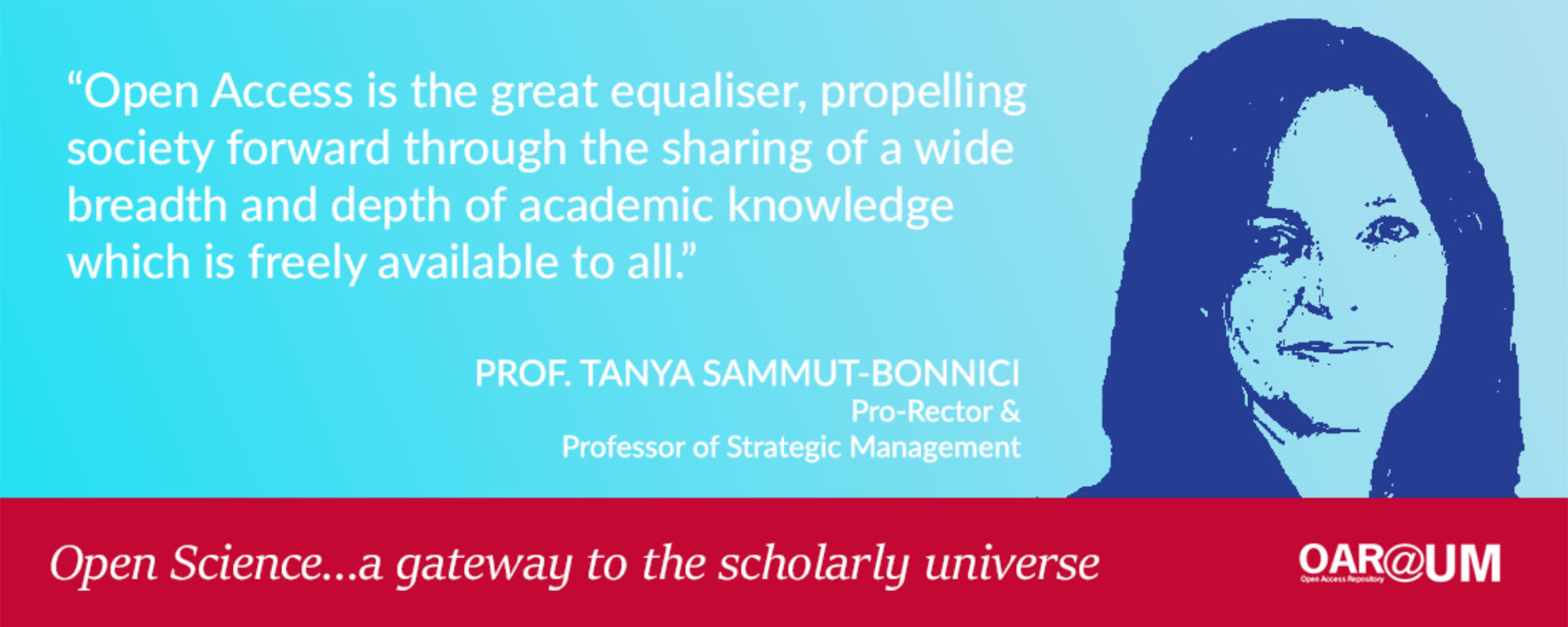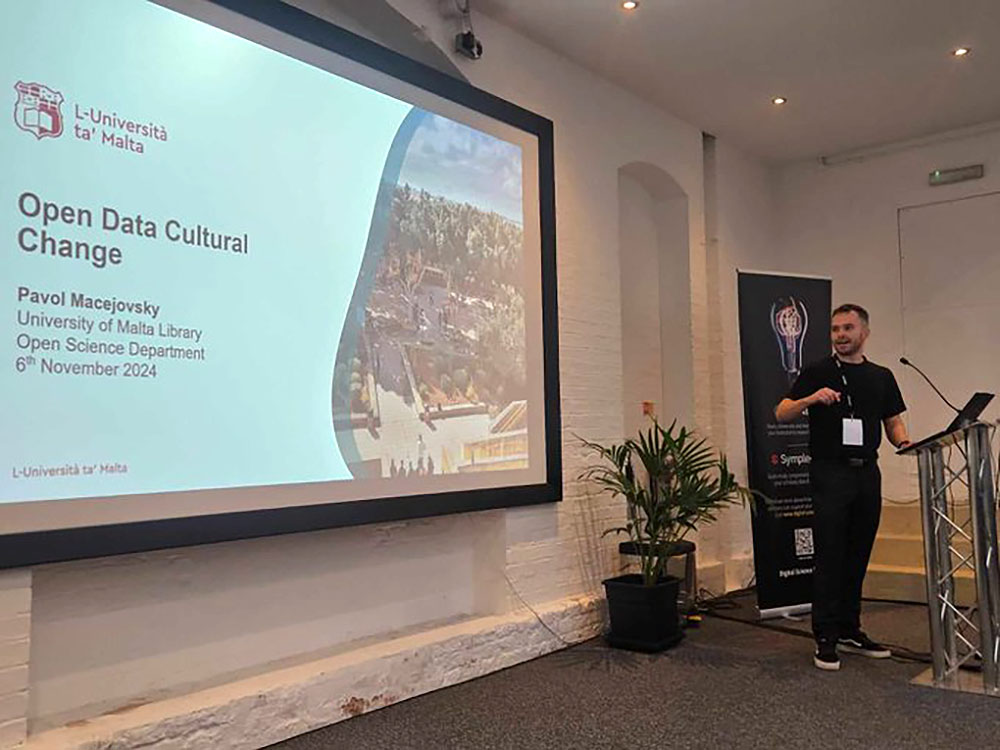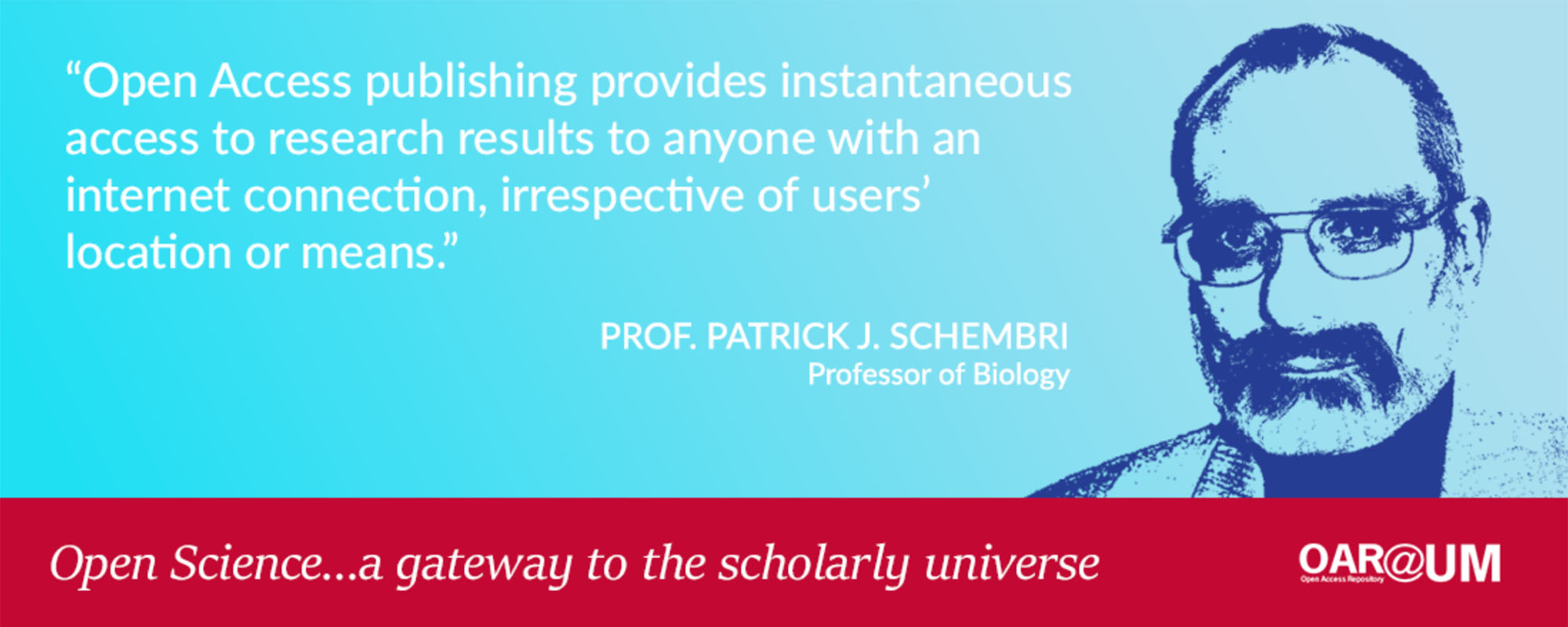Research Data Management offers researchers a way to safeguard their findings and a pathway to collaboration, efficiency, and greater recognition for their work. At its core, research data forms the foundation of every scholarly discovery, making Open Access essential for more transparent and reusable research.
At the University of Malta (UM), this vision for Research Data Management is taking shape through drUM, the University’s institutional data repository powered by Figshare. This platform provides a space for storing, managing, and making research data and its metadata accessible. To date, over 6,200 Open Access research publications have been deposited to OAR@UM – UM’s Institutional Repository. Alongside UM’s Open Access Policy, this initiative is just one example of the University’s commitment to openness and accountability in research.

Navigating Open Data
During the era of rapid information spread, making research data and methodologies available combats misinformation and reinforces the credibility of scholarly work. By depositing data in a trusted repository like drUM, researchers ensure that their findings remain traceable, verifiable, and reusable, while promoting transparency and upholding academic integrity.
Funding schemes, such as Horizon Europe, encourage open data practices but do not mandate Open Access to all data. For instance, sensitive data may be restricted with access being provided only upon a justifiable request. Researchers have the option to share methodologies, data collection documentation, and metadata in line with FAIR (Findable, Accessible, Interoperable, Reusable) principles, ensuring transparency while maintaining confidentiality.
Of course, open data is not without its challenges. In 2020, researchers Inkpen, Gauci, and Gibson highlighted that open data is not a neutral process as it operates within complex power dynamics shaped by neoliberal pressures, economic exploitation, and academic inequalities. These challenges risk overshadowing ethical concerns related to data production, ownership, and sharing. Hence, it is crucial to recognise these socioethical dimensions and foster collaborative, equitable approaches to data use in solidarity with a more responsible open data movement.
Charting the Course for Open Data

The global trend toward data sharing is on the rise. The State of Open Data 2024 Special Report shows the data sharing habits of researchers around the world (see Graph 1). While many institutions now have policies encouraging data sharing, the report indicates that actual practices still vary. One key takeaway is that good policies alone are not enough – researchers need support, tools, and recognition to follow through.
The report advocates for introducing incentive mechanisms, like the S-Index, which is used to credit researchers for data sharing, much like traditional publication citations. This could inspire further engagement from the academic community by addressing the lack of recognition for open data contributions.
The report emphasises a four-step process for effective data sharing: Policy → Mandate → Compliance → Measurement. This framework mirrors UM’s trajectory, especially as the transition from Open Access as an ideal to an institutional mandate is already well underway. At present, the University is finalising its Research Data Management policy, which will guide and support researchers in using drUM to share their data responsibly. These actions place UM within a growing international community that sees data not just as a byproduct of research but as a valuable output in its own right.
Beyond the Publication: The Growing Role of Data in Research Excellence
As universities compete for funding, rankings, and global partnerships, data is no longer seen as a background detail – it’s becoming a key asset. In November 2024, the Figshare & Symplectic EMEA User Conference presented itself as an opportunity for participants to highlight the growing need for better tools to manage research data and track its impact. This event brought together institutions from across Europe to share ideas and experiences with open research infrastructure.
One of the standout talks at the conference came from Ann Campbell, who discussed how the UK’s next Research Excellence Framework, scheduled for 2029, is moving toward new ways of measuring research impact. These include not only publications but also broader contributions, such as datasets, public engagement, and societal impact. The message was clear: research is being evaluated in new ways, and data plays a growing role.
UM’s commitment to the open data movement was also made evident at the conference as the UM Library’s Open Science Department presented its work with drUM, showing how it is more than just a storage space – it’s a tool for digital collaboration.

(Photo courtesy of Pavol Macejovsky)
Training at UM
As research becomes more data-driven, UM is building the skills and support structures needed to succeed. By investing in tools like drUM and encouraging responsible sharing, the University is making sure its researchers are ready to contribute to – and benefit from – the global shift toward Open Access research.
To help researchers adapt to this new environment, the UM Library has launched training sessions on how to use drUM and write effective Data Management Plans. These workshops are designed to make the data sharing process easier and more practical. If you’re interested in attending an upcoming session, please contact: drum.lib@um.edu.mt






Comments are closed for this article!